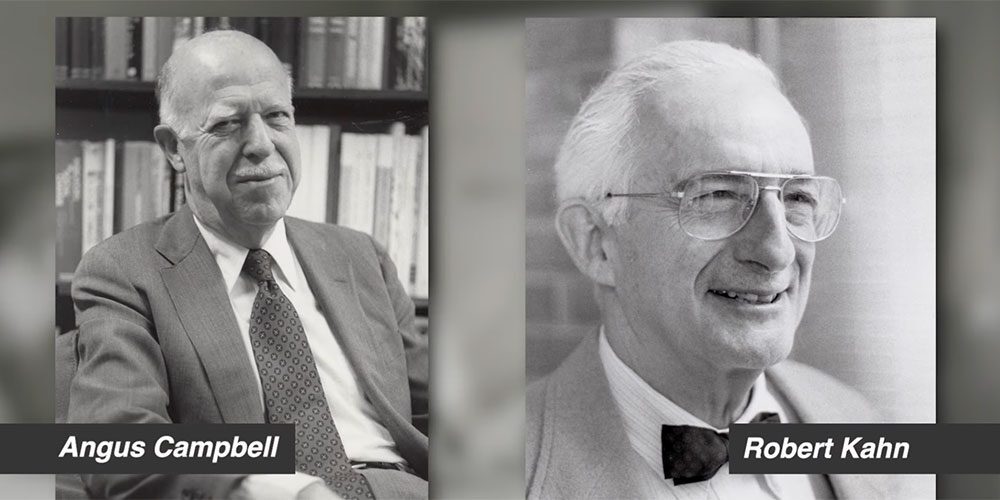April 2023
It’s my distinct pleasure to mark a successful conclusion to the academic year.
We have much to celebrate.
On April 29, we celebrated the Class of 2023 – undergraduates and graduate students alike – who not only overcame their exams and final projects, but who also persevered through the unexpected challenges of COVID-19.
All of us should join in that celebration, a testimony to our enduring adaptability, integrity and excellence.
Survey says…
This month, I’d like to showcase U-M’s Institute for Social Research (ISR), the world’s largest academic social science survey and research organization — where 300 scientists from over 20 academic disciplines come together to study society’s constantly changing challenges.
I am fortunate to have access to the talented experts at ISR who are advising me on how best to approach data collection related to Vision 2034, my strategic visioning initiative for the University.
ISR’s work began in 1948 when founders Angus Campbell and Robert Kahn (pictured above) pioneered theories and methods that produced the only correct prediction of Harry Truman’s presidential victory that year. The institute was formalized in 1949, and since then, ISR has evolved into a global leader in population-based surveys and data acquisition.
ISR’s research continues to transcend academic disciplines and political, economic, and social boundaries. Its work is a telescope on society at the most fundamental level. By learning more about ourselves, we can better understand how to grow and change, how to make ourselves into the people we aspire to be.
I’ll see you in May.
Sincerely,
Santa J. Ono, PhD
President
(Text remarks were culled from the video above.)




Douglas MacPherson - 1962 & 1975
I am very excited that you are continuing your theme and focus that it is the PEOPLE of a university that make it great. You did that in your inaugural address and you have done it again here in your focus on ISR where I once worked as an undergraduate with great mentorship. From janitors to Deans, from teaching fellows to the most recognized scholars, it truly is the people using, to the fullest, the material resources their efforts help provide.
Best wishes on your continued work.
Reply
MIRIAM HESS - 1950 and 1969
I am proud to say that my first job after graduating in 1950 was at the Institute for Social Research, so I was privileged to be among a select group.
Reply
Andrew Morrison - 1971 BA, 1980 Ph.D
My graduate school time at the Survey Research Center defined my career. I spent four years there from 1972-1975 as an Assistant Study Director, as part of my training in one of the first multi-disciplinary Ph.D. Programs in Mass Communication Research (journalism, psychology, sociology, and political science departments). Steve Withy, long time SRC director and Charlie Cannell, an ISR institution, were members of my dissertation committee. When I tried to explain my degree to people, I simply said I was trained to be a survey researcher. It led to my first job, and eventually to starting my own market research company which now is $300M in size.
Survey research today is challenged by methodological issues and many badly trained practitioners. Hopefully the Survey Research Center can continue to maintain and enhance the scientific foundation of this field.
Reply